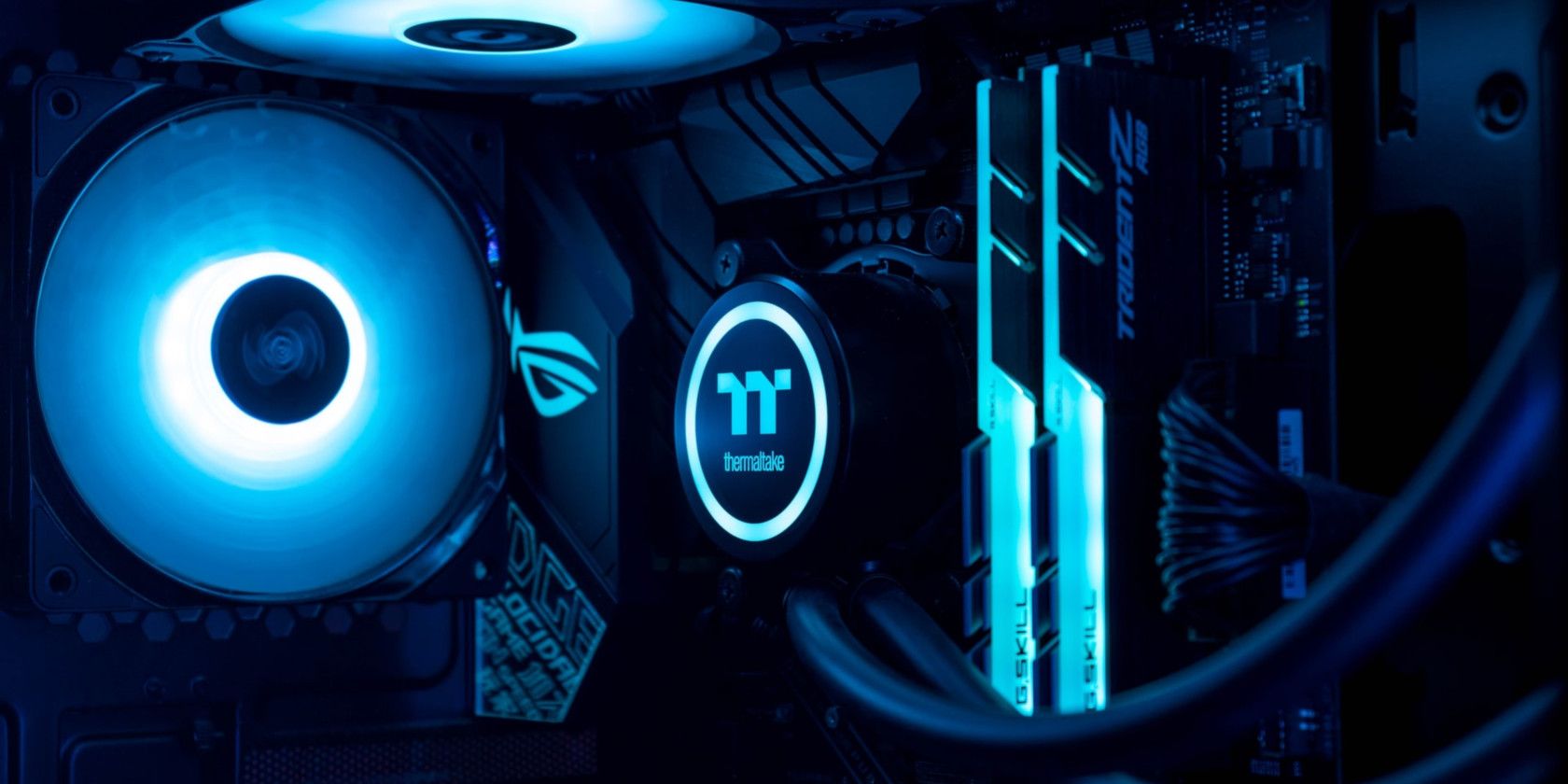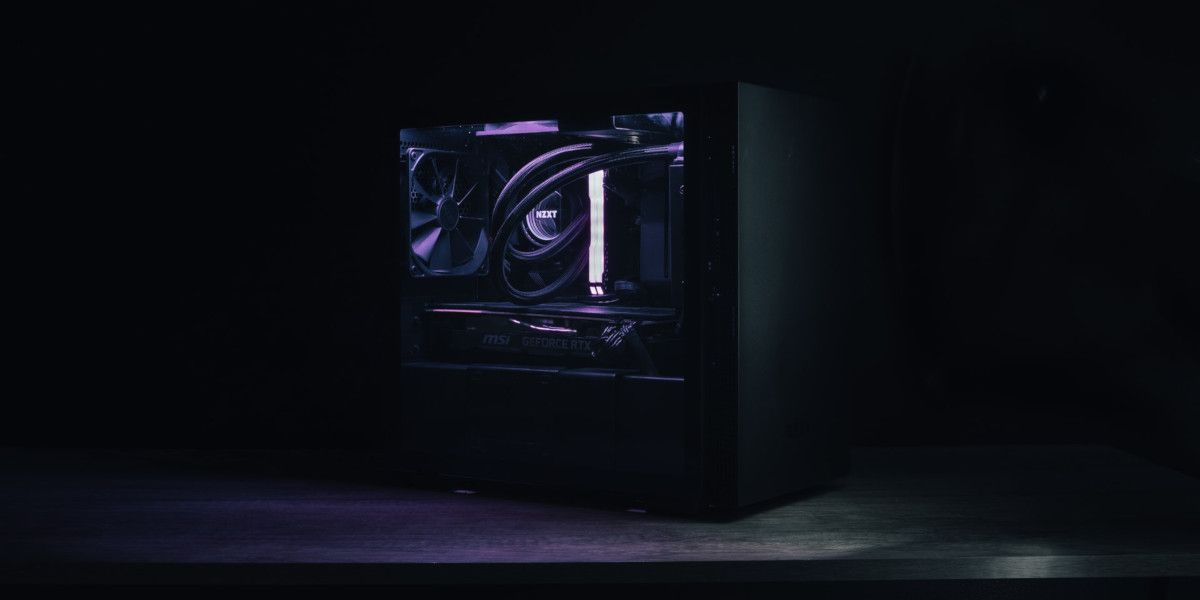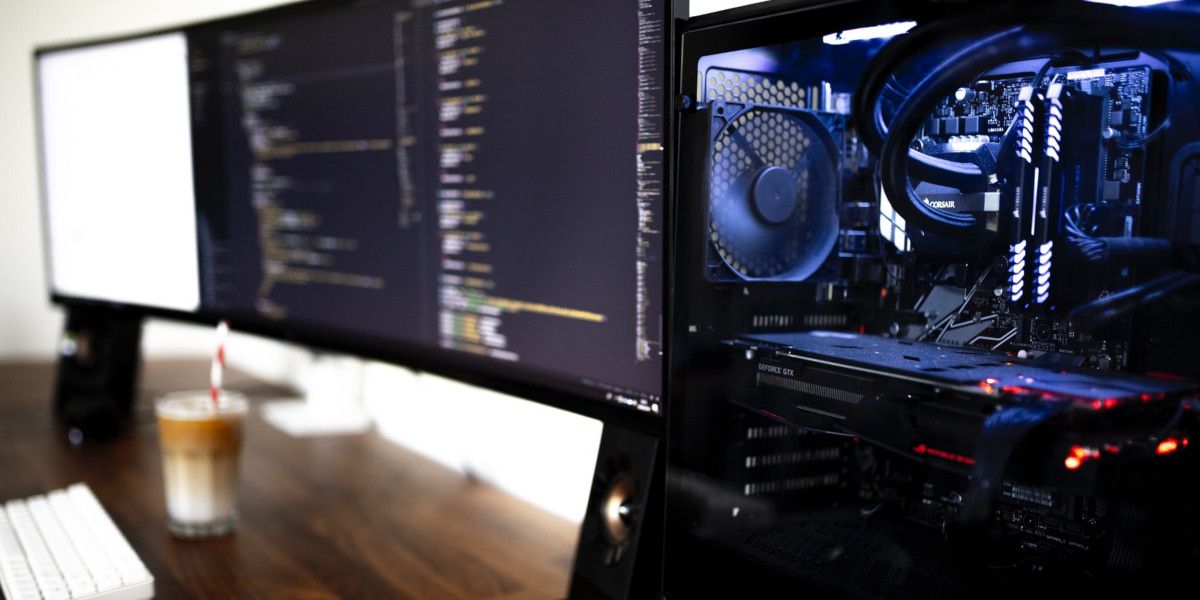Water cooled PCs use water to keep their parts cool. This may sound dangerous, but it's not if done correctly. Water cooling is an effective solution for regulating PC temperature that has several benefits to it. It also has a few downsides, though, which shouldn't be ignored.
Is building a water cooled PC worth it? Well, that depends on variety of factors, mainly what you will be using your PC for. This article will help you decide if you should build a water cooled PC or not, as well as explain how water cooled PCs work in general.
What Is a Water Cooled PC and How Do They Work?
A water cooled PC uses water cooling (also known as liquid cooling) to cool its main computer processor unit (CPU). Water cooling can be used to cool other computer components as well, but this requires setting up a custom cooling loop, with additional parts and installation.
Water cooling essentially works in a loop. Water coolers pump cold liquid into your case via an intake tube to absorb heat from hot computer components (usually the CPU). Then, this hot liquid is pumped via an outtake tube where it ends up in a radiator, which cools the liquid off and blows the exuding heat out of the case via an outtake fan.
Water cooled PCs are easily identified by the tubes that run inside of the case. As described above, these tubes form what is called a "cooling loop". Cooling loops can be as simple or as involved as you want them to be. Some PC builders setup impressive cooling loops that are a marvel to look at. At a minimum, though, a cooling loop requires only one intake tube and one outtake tube.
Why Would You Want a Water Cooled PC?
Water cooling is an effective PC cooling solution that exists as an alternative to air cooling. Air cooling relies on fans to blow hot air out of your PC, but this is not as efficient. The benefits of a water cooled PC (compared to an air cooled PC) include optimal cooling performance and less noise.
If you are an overclocker who likes to push your system to the limit, a water cooled PC would be worth it for you. Water cooled PCs are generally able to handle higher temperatures and stress loads than their air cooled counterparts, due to water having better cooling properties than air. Water has a higher specific heat capacity than air, which is one of the properties that makes it a better coolant.
Also, air fans are noisy compared to water coolers. Air cooled PCs typically make noticeable noise when under pressure. Water cooled PCs, on the other hand, stay silent even when handling intensive tasks.
Finally, maybe you just think water cooled PCs look cool, and you want try making one of your own. That is OK, too. Water cooled PCs can look very cool with colored tubes or RGB lighting. You don't have to be a performance junkie or a silence ninja to build a water cooled PC, you just need to be willing to try it out.
Is Building a Water Cooled PC Worth It?
Now, water cooled PCs can be great, but there are a few drawbacks to consider:
- Water cooling is expensive.
- Water coolers can be dangerous if not installed correctly.
A water leak is not something you want happening inside of your PC. The risk of a leak happening is relatively low if you install your loop correctly, but it is not something to ignore.
So then, given all the risks and benefits of water cooling, is building a water cooled PC worth it? Well, it really depends on how you plan on using your PC. If you are an overclocker or hardcore computer user that wants a silent work environment, then yes, building a water cooled PC would be worth it for you.
On the other hand, if you don't necessarily need cutting edge performance or complete silence from your PC, then building a water cooled PC is probably not worth it for you.
It is worth noting that you can still achieve stellar performance with air cooling. An air cooler like the Scythe Mugen 5 offers great cooling potential at a low price. Water cooling is by no means necessary, it only has a greater maximum cooling potential. It is important to recognize that some PC users will never use or need to use that maximum cooling potential, because most if not all of their computer use cases will never require it.
If you do decide to build a water cooled PC, it is not something to cheap out on, due to the risk of water leaks, and the fact that a mediocre water cooler doesn't really capitalize on the full potential of water cooling given the cost.
Do your research on the manufacturers of various water coolers, and find one that is reputable. The Corsair H60 is a reputable water cooler unit that won't break the bank. And when faced with picking parts, read how to pick the right components for building your next PC.
Decide If Water Cooling Is for You
Water cooled PCs deliver optimal system cooling and less noise. They can also look amazing. They do not come without drawbacks, however. Water cooled PCs typically cost more and come with the risk of water leaks.
In summary, cutting-edge computer users will probably reap the benefits of a water cooled PC enough to outweigh the costs and risks associated with them. Casual to intermediate users, however, probably won't get the most out of a water cooled PC, and might be safer with an air cooled one.
If you do decide to build a water cooled PC, remember to do your research before buying and install your cooling loop correctly. Then, show it off to the world and don't be afraid to see what your machine can do!



